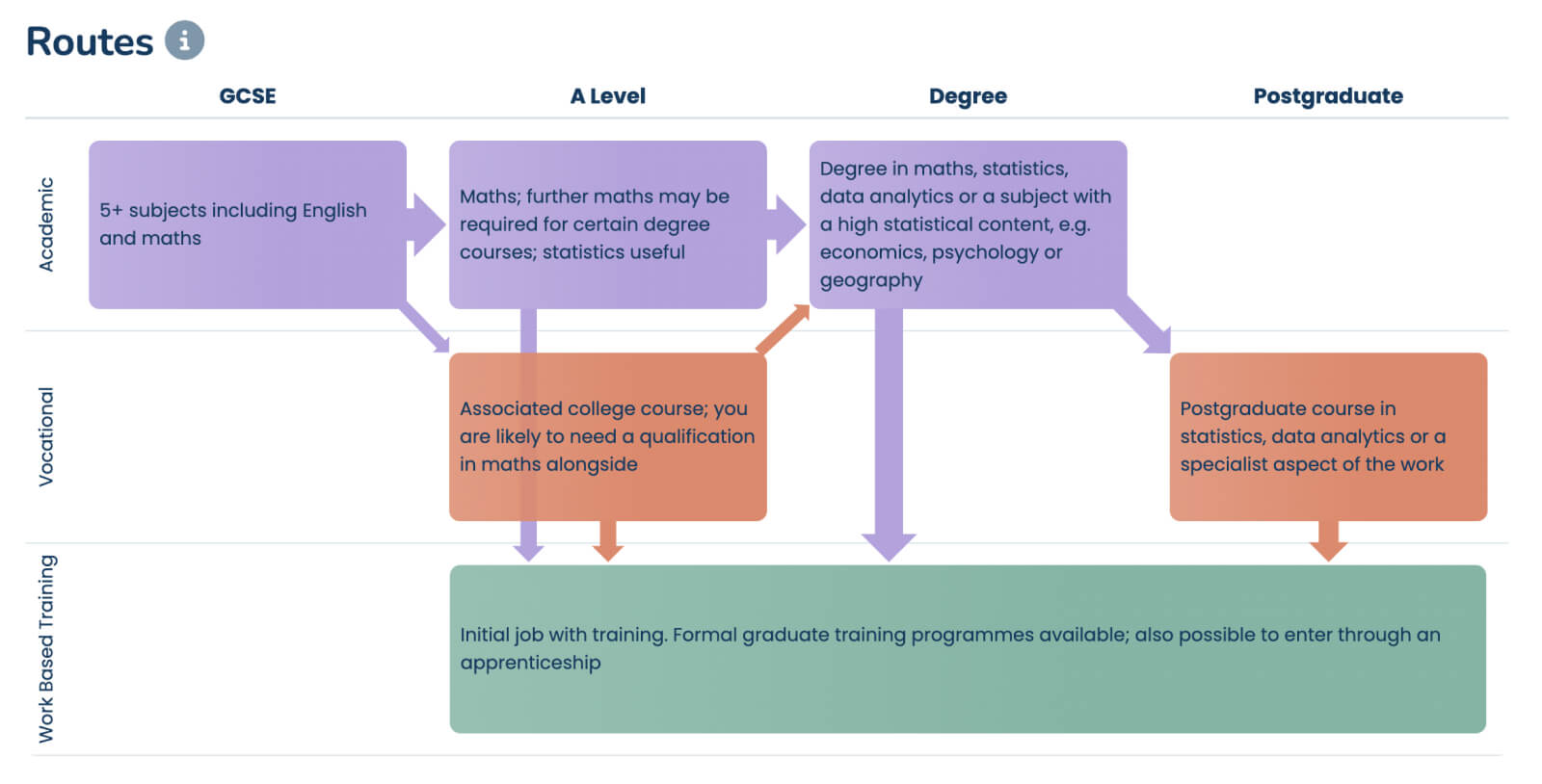Data Analyst Statistician

Key Facts
Overview
Data analyst-statisticians use statistical methods to collect and analyse data; they create models, and design and carry out research, reaching conclusions or interpretations about trends from the results. Much of their work is done using sophisticated computer programs. Data analyst-statisticians have to present their results as clearly as possible.
Positions are available in, for example, government departments and agencies, in finance and business, science-based research, market research, healthcare and engineering.
Data analyst-statisticians are logical, analytical and good at problem-solving.
What it takes
What it takes:
- maths knowledge
- analytical thinking skills
- to be thorough and pay attention to detail
- excellent verbal communication skills
- the ability to think clearly using logic and reasoning
- persistence and determination
- the ability to work on your own and in a team
- to have a thorough understanding of computer systems and applications
- the ability to solve complex problems
Day to day
Day to day:
Depending on the industry or sector, you might
- help to design scientific research studies
- use statistical software to analyse risk, for example in insurance
- look for trends and patterns to help organisations and government make policy decisions
- investigate market research into consumer habits and feedback
- analyse results from clinical trials
- create models to predict demand for services or goods
- check quality control standards in areas like drug and food testing
You could work in an office.

You will need
- An A Level (or equivalent) in maths
- A GCSE (4+/A*-C) (or equivalent) in English
- A GCSE (4+/A*-C) (or equivalent) in maths
- A degree in maths or statistics

Academic and Vocational Notes
For a career as a data analyst-statistician, most people start by taking a degree in maths, statistics or a subject that has a high statistical content. There are also relevant postgraduate courses.
Accredited degrees are available; check degree content and entry requirements with individual universities before you apply. Sandwich courses or any other work experience will help when it comes to applying for vacancies.
It is possible to train through an apprenticeship and some people work their way up from assistant-level roles. Vacancies are advertised locally, with training providers and on the Government's apprenticeships website.
Work Based Training Notes
Some employers - including central government - run structured graduate training programmes.
Once employed, you may be able to undertake specialist postgraduate-level study on a part-time basis.
With the necessary experience, qualifications and competencies, it is possible to work towards Chartered status with a relevant professional body.
Other Routes
Whilst these are the usual routes to this career, there can be alternatives. You will be able to discuss these with your adviser.




